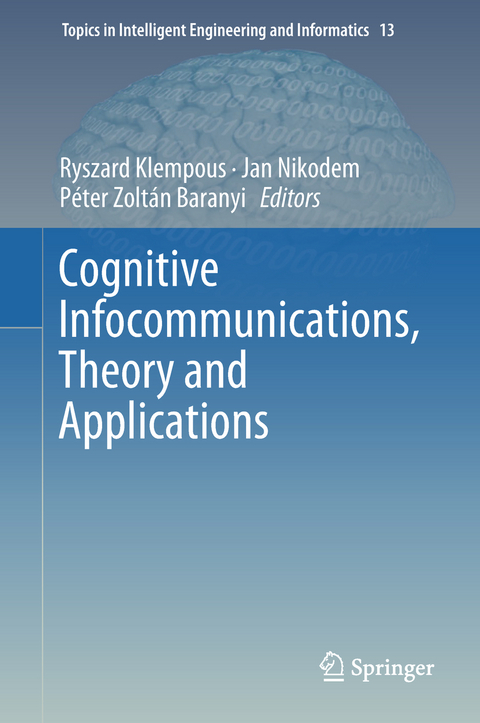
Cognitive Infocommunications, Theory and Applications
Springer International Publishing (Verlag)
978-3-319-95995-5 (ISBN)
Cognitive InfoCommunication begins by modeling human cognitive states and aptitudes in order to better understand what the user of a system is capable of comprehending and doing. The patterns of exploration and the specific tools that are described can certainly be of interest and of great relevance for all researchers who focus on modeling human states and aptitudes.
This innovative research area provides answers to the latest challenges in influence of cognitive states and aptitudes in order to facilitate learning or generally improve performance in certain cognitive tasks such as decision making. Some capabilities are purely human, while others are purely artificial, but in general this distinction is rarely clear-cut. Therefore, when discussing new human cognitive capabilities, the technological background which makes them possible cannot be neglected, and indeed often plays a central role.
This book highlights the synergy between various fields that are perfectly fit under the umbrella of CogInfoCom and contribute to understanding and developing new, human-artificial intelligence hybrid capabilities. These, merged capabilities are currently appearing, and the importance of the role they play in everyday life are unique to the cognitive entity generation that is currently growing up.
Using deep rectifier neural nets and probabilistic sampling for topical unit classification.- Monte Carlo methods for real-time driver workload estimation using a cognitive architecture.- Cognitive data visualization - a new field with a long history.- Executive functions and personality from a systemic-ecological perspective.- Mirroring and prediction of gestures from interlocutor's behavior.- Automatic labeling affective scenes in spoken conversations.- Tracking the expression of annoyance in call centers.- Modeling of filled pauses and prolongations to improve Slovak spontaneous speech recognition.- Enhancing air traffic management security by means of conformance monitoring and speech analysis.- Compassion cluster expression features in affective robotics from a cross-cultural perspective.- Understanding human sleep behaviour by machine learning.- Electroencephalogram-based brain-computer interface for Internet of Robotic Things.- CogInfoCom-driven surgical skill training and assessment.- Cognitive cloud-based telemedicine system.- Pilot application of eye-tracking to analyze a computer exam test.- The edu-coaching method in the service of efficient teaching of disruptive technologies.- 3D modeling and printing interpreted in terms of cognitive infocommunication.- Constraints programming driven decision support system for rapid production flow planning.- Improving adaptive gameplay in serious games through interactive deep reinforcement learning.- A study on a protocol for ad hoc network based on Bluetooth Low Energy.
| Erscheinungsdatum | 06.09.2018 |
|---|---|
| Reihe/Serie | Topics in Intelligent Engineering and Informatics |
| Zusatzinfo | XIII, 462 p. 190 illus., 89 illus. in color. |
| Verlagsort | Cham |
| Sprache | englisch |
| Maße | 155 x 235 mm |
| Gewicht | 871 g |
| Themenwelt | Informatik ► Theorie / Studium ► Künstliche Intelligenz / Robotik |
| Technik | |
| Schlagworte | Affective Scenes Labeling • Cognitive Architecture • Cognitive Data Visualization • Cognitive Infocommunication • Deep Rectifier Neural Nets • Executive Functions and Personality • eye-tracking in computer exam test • Modeling of Filled Pauses and Prolongations • Prediction of Gestures • Real-Time Workload Estimation • spontaneous speech recognition • surgical skill training • Tracking the Expression of Annoyance |
| ISBN-10 | 3-319-95995-6 / 3319959956 |
| ISBN-13 | 978-3-319-95995-5 / 9783319959955 |
| Zustand | Neuware |
| Haben Sie eine Frage zum Produkt? |
aus dem Bereich


